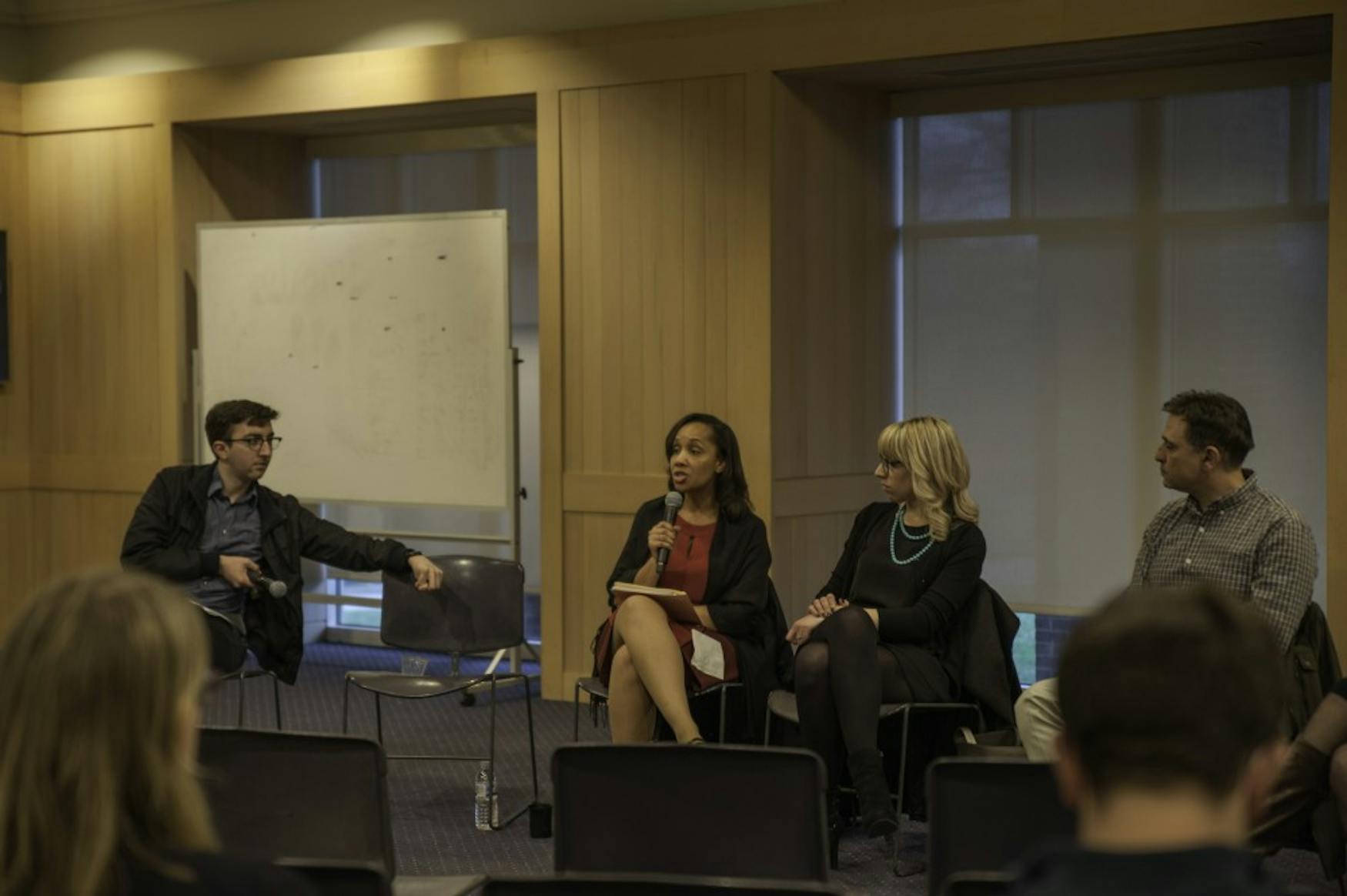Investigating Sexual Violence on Campus
Faculty and staff held an open student forum on sexual violence
According to a 2015 study on sexual assault on college campuses by The National Sexual Violence Resource Center, more than 90 percent of sexual assault survivors on college campuses do not report their assault. Given recent reports in national newspapers on college assaults and video series like “The Hunting Ground” airing on primetime television, colleges and universities across the country have found themselves in the spotlight. Under mounting public pressure to act, university administrators have worked to address the issue of campus sexual violence in a variety of ways, and Brandeis is no different.
This past Wednesday, April 18, Student Affairs held their fourth open forum of the semester. The topic of this week’s forum was Sexual Misconduct Response, Services & Prevention. Given the sensitivity of the matter, the panel included the director of the Office of Sexual Assault Services and Prevention and staff from the Office of Title IX and Sexual Misconduct in addition to members of the Student Affairs team, Student Union president Jacob Edelman ’18 and president elect, Hannah Brown ’19. The forum began with a modest audience; however, throughout the course of the meeting, students trickled in and joined the discussion.
The first question, sent via a Google form submission prior to the meeting, asked if every Brandeis student will be required to go through bystander intervention training. The answer was given in several parts by several panel members. First, the staff leading the discussion posited that in an ideal world every student would be trained in bystander intervention to make the campus a safer place. However, the panelists were met with some pushback; students who had been through the trainingbefore said the more they go through it, the less they learn.
In order to ensure the whole campus undergoes bystander training, it would have to be incorporated into the orientation program for incoming freshman. Since orientation is a time to help welcome new students into the undergraduate student body, giving them the skills to stand up against sexual harassment and assault could be an important step in the process of entering college.
Rumors have a tendency to spread quickly in a relatively small university such as Brandeis, and one student raised concerns regarding the rules surrounding transparency of the Title IX office. The faculty responded by explaining that there is an annual report written at the end of every year. Three years ago, there were less than 50 reports of rape and sexual assault/harassment, but few victims decided to move forward in the investigation process.
Two years ago, after a series of campaigns to raise awareness about the resources available to victims of sexual harassment and assault, reported cases jumped to 66. This past year, that number dropped back down to around 50 reported cases. Out of the 10 people charged with sexual assault or harassment, six were found guilty and four innocent. A student in the audience spoke out, saying, “If they only have 60 percent success rate, how can they expect people to want to move forward with cases and trust the Title IX office?” The head of the The Title IX office, Robin Nelson-Bailey admitted that the biggest issue they face is figuring out ways to gain the trust of the student body. They explained that when dealing with such a delicate issue, they must develop strategies to instill that trust before progress can be made.
When choosing to move forward with a case, there are two possible routes from which the plaintiff can choose. Anthony Sciaraffa, the interim official Title IX investigator for the University, described his job as being that of a “neutral fact finder.” Based on what the student bringing the charges forward wants, Sciaraffa will either conduct a formal or informal investigation. A formal investigation involves the case being adjudicated through the special examiner’s process.
Led by Sciaraffa, the informal investigations are contained within the University and are conducted with more student feedback and involvement in the case. There are non-punitive sanctions attached. The first option is for those who students who may be prepared to go to court, and the second option is for those who want to keep their charges within the University. Most cases are settled with a resolution for a no-contact order, the goal of which is to keep the student safe and away from their perpetrator.
Brandeis requires all athletes as well as all the heads of all on campus groups to go through active bystander training. By the fall of 2019, bystander training will be incorporated into the general education requirements for all Brandeis students.



Please note All comments are eligible for publication in The Justice.